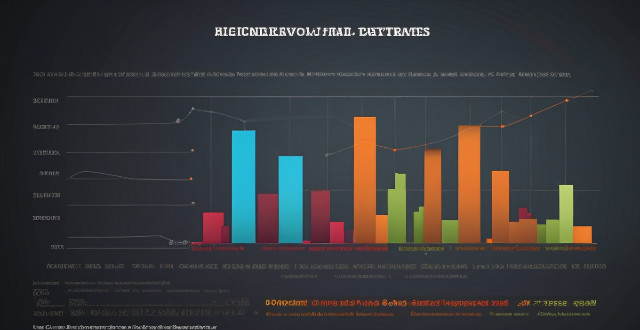Company Compliance

What are the penalties for non-compliance with data protection regulations ?
Non-compliance with data protection regulations can result in significant penalties, including fines, legal action, and damage to a company's reputation. The specific penalties depend on the jurisdiction and the severity of the violation. Some common consequences include: - Fines and Financial Penalties: GDPR violations can result in fines up to €20 million or 4% of global annual turnover for less severe infringements, and up to €40 million or 8% of global annual turnover for more serious violations. CCPA violations can result in fines up to $2,500 per violation for each time a Californian resident's rights are violated, and up to $7,500 per violation if the violation involves selling or sharing personal information without consent. - Legal Action: Class action lawsuits initiated by individuals or groups may claim damages for non-compliance, with potential for large settlements depending on the number of affected parties and the severity of harm caused. Government investigations may involve possible subpoenas and audits to assess compliance levels and potential violations, as well as enforcement actions such as cease and desist orders or demands to implement corrective measures. - Reputational Damage: Loss of trust from customers when data breaches occur can erode customer faith in a company's ability to protect their information, and negative publicity from data misuse can permanently harm a company's brand image. Difficulty in partnerships and deals may arise, with other companies ending collaborations due to associated risks, and potential investors being wary of putting money into a company with known compliance issues. - Market Access Restrictions: In extreme cases, a company might be prohibited from handling certain types of data, and some regions might restrict entry to companies that have a history of non-compliance. - Corrective Measures and Costs: Technical and organizational changes may be required, such as upgrading systems to ensure compliance with technical standards like encryption and security protocols, and employee training to improve understanding of data protection laws and best practices. Legal fees for representation in legal proceedings or during investigations, and settlement payments to resolve class action lawsuits or government enforcement actions, may also be necessary. It is crucial for organizations to prioritize data protection compliance as part of their business strategy to avoid these adverse effects.

How does risk management relate to compliance and regulatory requirements ?
Risk management and compliance are interconnected aspects of organizational operations, aimed at safeguarding against potential losses and legal issues. Risk management identifies and prioritizes risks impacting objectives, while compliance ensures adherence to laws and regulations. An integrated approach enhances efficiency, and collaboration between departments is key for success. Regulatory requirements significantly influence risk management and compliance strategies, with direct rules and indirect environmental changes. Understanding these dynamics is vital for maintaining reputation and avoiding compliance breaches.

How do I file a claim with my sports insurance company ?
Filing a claim with your sports insurance company is important to ensure compensation for injuries or damages during sports activities. To file a claim, gather necessary documents, contact the insurance company, fill out the claim form accurately, submit it with supporting documents, and follow up on the claim's progress. Staying organized and persistent can increase chances of receiving deserved compensation.

How quickly can I get reimbursed by my travel insurance company ?
The time it takes to get reimbursed by your travel insurance company depends on the type of claim you are filing and the policies of your insurance provider. Emergency medical claims can be processed within a few days to a week, while non-medical claims can take longer depending on the nature of the claim and the required documentation. To expedite the process, it's important to read your policy carefully, keep all receipts and documentation, contact your travel insurance company promptly, submit complete and accurate information, and follow up on your claim if necessary. By following these tips, you can help ensure a smoother and faster reimbursement experience.

Are there any advantages to using a tax refund service company instead of doing it myself ?
Using a tax refund service company offers several advantages, including time-saving, accuracy, expertise, convenience, and peace of mind. These services can help maximize refunds or minimize tax liability by ensuring accurate tax preparation and staying up-to-date with changing tax laws and regulations.

What are the most effective ways to measure compliance with building energy efficiency standards ?
The topic summary for the text is "Measuring Compliance with Building Energy Efficiency Standards". The text discusses various methods used to assess a building's energy efficiency, including energy audits, building performance monitoring, third-party verification, benchmarking, energy efficiency ratings, and regulatory compliance checklists. Each method has its own advantages and can be used in combination to ensure that buildings meet minimum requirements for energy efficiency and contribute to reducing their environmental impact.

How does sports sponsorship affect the overall perception of a company or brand ?
Sports sponsorship can significantly impact the overall perception of a company or brand, both positively and negatively. Positive effects include increased brand awareness, association with positive attributes, and customer loyalty and engagement. Negative effects may arise from negative associations, costly investments, and limited target audience. Companies must carefully consider the potential benefits and risks before committing to sports sponsorships.

How are international climate agreements enforced, and what are the consequences of non-compliance ?
Enforcement of international climate agreements is crucial for mitigating the effects of climate change. The enforcement relies on mechanisms such as monitoring and reporting, peer review, financial incentives, and consequences of non-compliance. Countries are required to report their greenhouse gas emissions and progress towards meeting their commitments, which are reviewed by other countries and experts. Peer review helps identify any issues or discrepancies in the reported data and promotes transparency and accountability. Financial incentives, such as access to funding for climate action projects, can encourage compliance. Non-compliance can have significant consequences, including loss of credibility, economic impacts, legal actions, loss of funding, and reputational damage. Enforcement mechanisms rely heavily on voluntary compliance and cooperation between nations.

What factors influence the performance of tech stocks ?
Tech stocks are influenced by macroeconomic conditions, industry-specific factors, and company-specific factors. Macroeconomic conditions include interest rates and economic growth. Industry-specific factors include regulatory changes and technological advancements. Company-specific factors include financial health and leadership and management.

Why is climate risk management important for businesses and organizations ?
Climate risk management is crucial for businesses and organizations due to its impact on operations, financial implications, reputational considerations, legal and compliance obligations, and ethical responsibilities. Supply chain disruptions, physical asset damage, regulatory changes, insurance costs, investor pressure, capital at risk, public perception, stakeholder engagement, leadership opportunities, compliance with laws, contractual obligations, sustainability goals, and intergenerational equity are all affected by climate change. Proactive climate risk management can protect assets, maintain investor confidence, uphold reputation, meet compliance requirements, and fulfill ethical responsibilities to current and future generations.

How does GDPR affect international businesses ?
The General Data Protection Regulation (GDPR) has significant implications for international businesses, affecting everything from data collection and processing to customer communication. Key aspects include its territorial scope, consent requirements, appointment of Data Protection Officers (DPOs), Data Subject Access Rights (DSAR), cross-border data transfers, and potential fines and penalties for non-compliance. Companies must take proactive steps to ensure compliance with GDPR to avoid costly fines and penalties while building trust with customers and partners.

What is the typical structure of a private equity deal ?
The typical structure of a private equity deal involves several key components, including due diligence, investment structure, capital structure, governance and control, exit strategy, and legal agreements. The process begins with thorough due diligence to evaluate the target company's financial health, operational efficiency, market position, and growth potential. The investment structure defines how the PE firm will invest in the target company, while the capital structure determines how the target company will be financed after the PE firm's investment. Governance and control involve securing representation on the company's board of directors, gaining certain rights to veto major decisions, and bringing in new management or working closely with existing management to drive performance improvements. A successful private equity deal also requires a well-defined exit strategy for the PE firm to realize its investment return. Lastly, various legal agreements are put in place to govern the relationship between the PE firm and the target company.

How do you properly dispose of chemicals to ensure safety and compliance with regulations ?
Proper disposal of chemicals is crucial for environmental and health safety. Identify the chemical, classify it as hazardous or non-hazardous, determine the appropriate disposal method, follow packaging and labeling guidelines, comply with regulations, consider alternative disposal methods, and train personnel on safety procedures to ensure safe and compliant disposal.

How can we ensure compliance with environmental legislation ?
Ensuring compliance with environmental legislation is crucial for protecting the planet and its inhabitants, and can be achieved through education and training of stakeholders, developing and implementing policies, monitoring and reporting performance, and collaborating with stakeholders.

What are the legal implications of managing digital identities ?
Managing digital identities raises various legal implications including privacy laws, intellectual property rights, liability for misuse or breach, and compliance with industry standards. To ensure compliance, organizations must implement technical and organizational measures to safeguard personal information, obtain necessary permissions for proprietary information, mitigate liability risks through robust security policies, and adhere to identity management best practices.

Are there any risks associated with investing in a celebrity-founded company ?
Investing in a celebrity-founded company carries several risks, including lack of experience, overreliance on celebrity status, limited diversification, legal and regulatory risks, and market volatility. It is important for investors to carefully consider these risks before making any investment decisions and to conduct thorough research and consult with financial advisors to ensure that their investments align with their overall financial goals and risk tolerance levels.

What role do data protection officers play under data protection laws ?
Data protection officers (DPOs) are crucial for ensuring compliance with data protection laws in organizations. They advise on compliance, develop policies, ensure adherence to regulations, educate stakeholders, and act as a point of contact for personal data requests.

What challenges do ecological protection areas face in terms of enforcement and compliance ?
生态保护区在执行和合规方面面临的挑战包括资源不足、法律框架不健全、社区抵抗和文化差异。解决这些问题需要增加资金投入、加强立法、促进与当地社区的互动和跨文化理解,以保护自然生态系统并确保其长期可持续性。

How can I ensure that my sports facility is compliant with all relevant regulations and standards ?
To ensure your sports facility's compliance with all relevant regulations and standards, you should research and understand the applicable rules, conduct a compliance audit, develop a plan to address any non-compliant areas, train your staff, and maintain compliance over time.

What is the General Data Protection Regulation (GDPR) ?
The General Data Protection Regulation (GDPR) is a comprehensive data privacy law that governs how personal information is collected, processed, and stored by organizations within the European Union (EU). It was designed to protect the rights of individuals and ensure their personal data is handled securely and transparently. Key features of GDPR include data minimization, consent, transparency, data portability, right to erasure, data protection officers (DPOs), and penalties for non-compliance. Benefits of GDPR compliance include enhanced trust between organizations and customers, risk mitigation through strong data protection measures, competitive advantage in the EU market, and increasing global relevance as other countries adopt similar laws. Challenges of GDPR compliance include complexity, cost, cultural differences leading to confusion and potential non-compliance, and technological limitations. In conclusion, the General Data Protection Regulation (GDPR) is a crucial piece of legislation that aims to protect the privacy rights of individuals within the European Union. While it presents both benefits and challenges for organizations, compliance with GDPR has become an essential aspect of modern business operations in today's digital age.

In what ways can bad credit management lead to financial difficulties for a company ?
Poor credit management can lead to cash flow issues, increased costs, damage to supplier relationships, negative impact on business reputation, and legal implications. To mitigate these risks, companies should establish clear credit policies, conduct regular credit checks, maintain open communication with customers, leverage technology for payment tracking, and consider third-party services or credit insurance.

How can small food businesses ensure they are compliant with food safety regulations ?
The text provides a comprehensive guide on how small food businesses can ensure compliance with food safety regulations. It emphasizes the importance of compliance in protecting consumer health, avoiding legal consequences, and enhancing brand reputation. The steps for ensuring compliance include understanding the regulations, training staff, implementing GMP, using quality ingredients, monitoring and testing, and having a plan for non-compliance. Following these steps can help small food businesses meet legal requirements and assure customers of the highest standards in food safety, ultimately leading to customer loyalty and a strong brand reputation.

How has technology improved food safety monitoring and compliance ?
This article discusses how technology has played a crucial role in enhancing food safety measures. It covers traceability systems, sensor technology, data analytics, automation and machine learning, and blockchain technology. Traceability systems allow for the tracking of products from farm to table using barcodes, QR codes, and RFID tags. Sensors monitor various parameters that impact food safety, such as temperature, humidity, and chemical composition. Data analytics tools process vast amounts of collected data to identify patterns, trends, and potential risks. Automated systems reduce human error and increase efficiency in food processing plants, while machine learning algorithms enhance decision-making processes based on learned behaviors from past data. Blockchain offers a decentralized way to record transactions securely and transparently when applied to food supply chains. By leveraging these technological advancements, we can work towards a future where food safety concerns are minimized, benefiting both consumers and industry stakeholders alike.

How can governments regulate the use and disposal of harmful chemicals ?
Governments can regulate the use and disposal of harmful chemicals through legislation, education and awareness programs, and enforcement and monitoring. Laws and regulations should cover all aspects of chemical management, including registration, labeling, restrictions on use, safe handling, waste management, and penalties for non-compliance. Public education campaigns and training programs can help businesses and consumers understand the risks associated with harmful chemicals and how to safely handle and dispose of them. Regular inspections and audits can ensure compliance with laws and regulations, identify potential hazards, and verify that proper safety measures are in place. Reporting and record-keeping requirements can also help government agencies monitor chemical management practices and ensure compliance with regulations.

What are some examples of successful TCFD implementation by companies ?
The Task Force on Climate-related Financial Disclosures (TCFD) was established by the Financial Stability Board (FSB) in 2015 to develop a framework for voluntary climate-related financial risk disclosures. Since then, many companies have successfully implemented the TCFD recommendations, providing stakeholders with valuable information about their exposure to climate-related risks and opportunities. Here are some examples of successful TCFD implementation by companies: **Unilever** has conducted a comprehensive assessment of its climate-related risks, including transition and physical risks. The company has identified potential impacts on its supply chain, operations, and products due to climate change. Unilever publishes detailed reports on its website, outlining its greenhouse gas emissions, water withdrawal, and waste generation. The company also discloses its progress toward sustainability targets, such as reducing carbon emissions and increasing renewable energy usage. Unilever actively engages with stakeholders, including investors, customers, and employees, to understand their concerns and expectations regarding climate-related issues. This helps the company to identify and prioritize areas for improvement in its sustainability efforts. **Iberdrola** has integrated climate risk management into its overall risk management framework. The company assesses both short-term and long-term climate-related risks and opportunities, considering factors such as changes in regulations, market trends, and technological advancements. Iberdrola provides detailed information about its greenhouse gas emissions, energy consumption, and renewable energy production. The company also discloses its strategies for adapting to climate change, such as investing in renewable energy projects and developing new technologies to reduce emissions. Iberdrola engages with stakeholders through various channels, including annual sustainability reports, social media, and public forums. The company seeks feedback from stakeholders to improve its sustainability performance and ensure that it aligns with societal expectations. **Microsoft** has conducted a thorough assessment of its climate-related risks, focusing on both direct and indirect impacts. The company has identified potential threats to its infrastructure, supply chain, and customer demand due to climate change. Microsoft publishes detailed reports on its greenhouse gas emissions, energy consumption, and water usage. The company also discloses its progress toward sustainability targets, such as reducing carbon emissions and increasing renewable energy usage. Microsoft engages with stakeholders through various channels, including annual sustainability reports, social media, and public forums. The company seeks feedback from stakeholders to improve its sustainability performance and ensure that it aligns with societal expectations.

What is the difference between a bond and a stock ?
Bonds and stocks are two different types of financial instruments that companies use to raise capital. While both are used for funding, they have distinct differences in terms of ownership, returns, risks, and other factors. Here are some key differences between bonds and stocks: - Bonds represent debt and provide regular interest payments with a fixed maturity date, while stocks represent equity and offer potential dividends and capital appreciation without a set maturity date. - When you buy a bond, you are essentially lending money to the issuer (usually a company or government). In return, you receive a bond certificate that represents your loan. You do not own any part of the company; you are simply a creditor. - When you buy a stock, you become a part owner of the company. This means you have a claim on the company's assets and earnings, as well as a say in how the company is run through voting at shareholder meetings. - The primary return from owning a bond comes from interest payments made by the issuer. These payments are usually fixed and paid at regular intervals until the bond matures, at which point the principal amount is repaid. - The return on stocks comes from dividends (if the company chooses to pay them) and capital gains (the increase in the stock price over time). Stock prices can be volatile, so the potential for high returns is greater than with bonds, but so is the risk. - Generally considered less risky than stocks because they offer a fixed rate of return and have priority over stockholders in the event of bankruptcy. However, there is still risk involved, especially if the issuer defaults on its payments. - More risky than bonds because their value fluctuates with market conditions and the performance of the underlying company. If the company does poorly, the stock price may fall significantly, and investors could lose part or all of their investment. - Have a defined maturity date when the principal amount must be repaid by the issuer. This provides a clear timeline for investors. - Do not have a maturity date; they exist as long as the company remains in business. Investors can sell their shares at any time in the open market. - Interest income from bonds is typically taxed as ordinary income. - Long-term capital gains from stock sales may be taxed at a lower rate than ordinary income, depending on the tax laws of the jurisdiction.